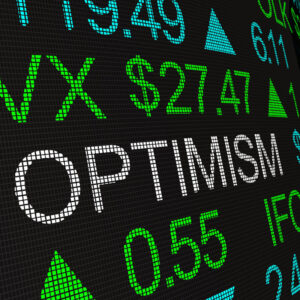 If ever there was a time when we would expect Mr. Market to suddenly decide that stocks are overvalued, and cause a bearish plunge in stock prices, it would be now. The Middle East is in turmoil and seems to be on the brink of a wider war between Israel and its Moslem-led neighbors.
If ever there was a time when we would expect Mr. Market to suddenly decide that stocks are overvalued, and cause a bearish plunge in stock prices, it would be now. The Middle East is in turmoil and seems to be on the brink of a wider war between Israel and its Moslem-led neighbors.
Mr. Market, of course, is a fictitious entity, which stands for the collective thoughts and emotions of all the investors who buy, sell and hold stocks. Mr. Market is subject to odd whims on occasion, as in 2008, when the markets took a 50% nosedive upon news that the large brokerage firms had been lying about the value of their real estate mortgage holdings. Mr. Market was spooked by the onset of the Covid pandemic, and then decided that things were not just all right, but were, in fact, worthy of a long stock market boom. We never actually know what Mr. Market is thinking from day to day or even week to week, but in the long run, Mr. Market is generally forced to admit that the values of companies, in aggregate, have been incrementally growing all along through the efforts of millions of workers who toil at their desks and factories, day by day, week by week.
The surprising thing is that, with all the headlines about all the current turmoil, Mr. Market—that is, the majority of investors—seems to be relatively calm at the moment.
What gives? The lesson here is that, while some investors might connect dysfunction in Congress and the awful footage coming out of the Middle East with lower stock values, most market participants seem to realize that these things aren’t a proximate danger to company profits. Mr. Market is not always irrational or panicky, and there is danger that this or that individual will panic and sell at a time when the rest of the market doesn’t share their fear. For all we know, when the geopolitical and local political turmoil resolve themselves—and they will, eventually—people will experience relief and elation, become more confident about the future, and Mr. Market will experience optimism and a nice rise in stock prices. Those who panicked will be left behind.
Experience has shown us that whenever people try to outguess Mr. Market, they wind up with lower returns than what Mr. Market—however irrational they may sometimes be—delivers in the long run. The best way to get those long-term returns that Mr. Market offers is to just ride with them for the long haul, experience those temporary panics and, as now, those oddly rational periods when you might feel nervous but the markets are holding steady. Mr. Market may not always make sense, but the long-term track record has been remarkably positive through a lot worse headlines than we’re experiencing now.



